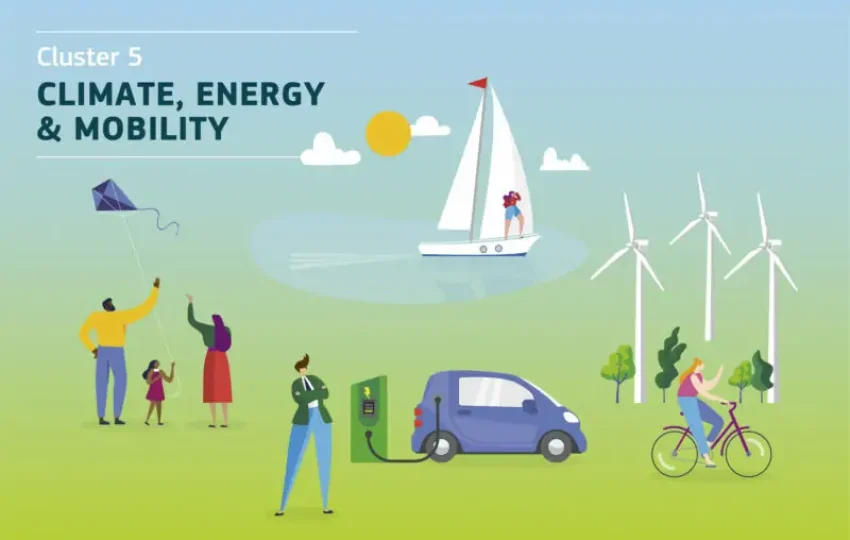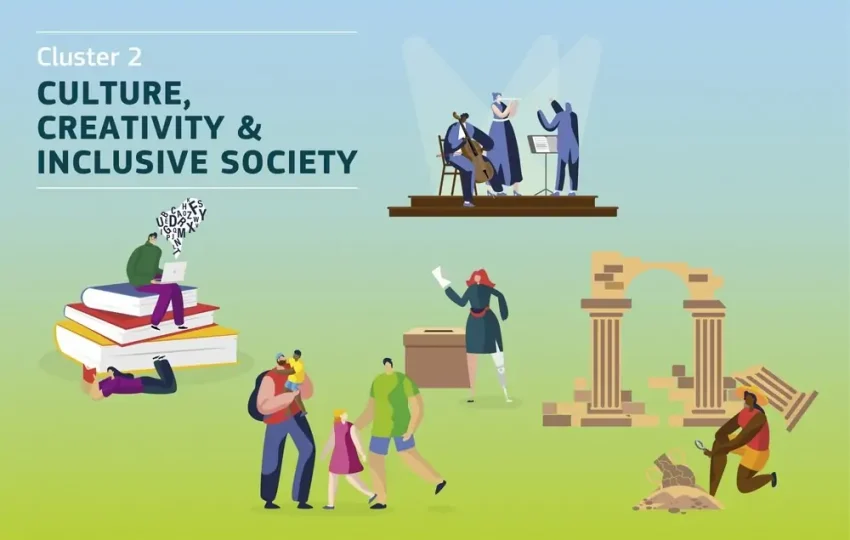The world economy is evolving at a fast pace. The impact on Europe is massive. The European programmes that have been proposed by the European Commission are aiming to boost jobs, growth, and investments all across the European area.
Taking part in these programmes means that you are going to be making an effort in becoming a strong stakeholder for Europe. You will need to build your experience and your expertise and you will slowly be able to aim for bigger programmes with more budget. It all starts with identifying the right funding opportunities for your business/organization.
With this article, we are going to attempt to guide you through the process of finding the right European funding programmes and calls for you and start building your experience as a project manager and an important partner for European Programmes.
Step 1
Identify the best funding opportunity
The first thing you will need to do, to get funding for your project, will to
identify the right call for it. Relevant calls for proposals have specific guidelines. It is important to take the time to go through those guidelines in order for you not to make any kind of mistake during the application process.
Step 2
Find your partners
In their majority, EU-funded projects are collaborative projects. That means that you are going to have to find other organizations from different EU countries, to build a consortium for the project. There is a large number of services that can help you find your partners. You can start by checking out the EUcalls.net database.
Step 3
The application
Follow the guidelines to the letter, prepare an appropriate proposal that meets the criteria and requirements of the calls and submit it. The sooner, the better! Remember that the proposal needs to meet the eligibility and admissibility criteria of the call to be qualified for funding.
Step 4
Evaluation
Wait for the evaluation process to be completed. If your proposal does not get approved you will receive an email explaining what was wrong in the proposal. You can use these guidelines to improve the proposal and maybe submit it again under another call. Or simply write a new one based on the experience you gained while writing the previous one.
If your proposal does get approved for funding, you will move on to the next stage. Signing the Agreement. This is an important stage. When your proposal gets approved, you will need to sign the agreement, to receive the funding and start with the implementation of the project!
Step 5
Project management
After being awarded the funding, there will be certain actions that you are going to have to take as well as various steps. In general, that will be the project management phase which is, of course, the largest phase with the most steps. If you are a first-timer, you can both use the European Commissions guidelines, various tools and templates that will help you meet your deadlines as well as asked for one of your experienced partners to help guide you through the implementation of your tasks.
What types of funding are there?
EU funding comes in three different management modes:
1. Direct Funding
In Direct Funding, it is the European Commission that manages the budget. That management includes awarding the grants, monitoring all the activities, transferring all the funds, selecting the contractors and completing every other financial obligation.
2. Indirect Funding
In Indirect Funding, all the above activities are being handled by non-EU countries, international organizations, development agencies, and other bodies.
3. Shared Management
In Shared Funding, the European Commission assigns the management of some programmes to the EU countries that are under the Shared Management Agreements. Under the agreements, these countries manage mainly, authorities such as ministries and other public bodies.
According to statistics 80% of the budget of the European Programmes is managed under Shared Management Agreements.
Different Types of Funding
There are four different types of Funding for EU projects. These types are:
1. Grants
A grant is funding for projects that are contributing to EU policies. A grant may be awarded in different fields, from research or education all the way to humanitarian aid. Grants are awarded to private and public organisations, and in some exceptional cases to individuals.
2. Loans, Guarantees and equity
The EU provides loans, guarantees and equity as forms of assistance, in relation to EU policy and programmes. This type of funding comes through local financial institutions. These institutions are banks, guarantee societies or equity investors and determine the exact financing conditions: the amount, duration, interest rates and fees
3. Subsidies
Subsidies and other types of funding are managed directly by EU national governments, not by the European Commission. For instance, agricultural subsidies are awarded to support farmers.
4. Prizes
Prizes are rewards to winners of contests from Europes biggest financial Framework Horizon 2020 and after 2020 Horizon Europe. They are also called challenge prizes or inducement prizes.
Are you Eligible for Funding?
Citizens, organizations, enterprises, local and regional bodies, and governments are the entities that can be eligible for funding under the EU criteria for EU programme funding. These are the six profiles of potential beneficiaries.
1. Small and Medium-sized Enterprises (SMEs)
All SMEs can have the opportunity to take part in European Projects. They can apply for funding in the form of grants, loans and in some cases, guarantees. SMEs can also bid for public contacts, aiming at providing the EU with various goods and services.
2. Non-profit and non-governmental organizations
Through a large number of different European Projects and Programmes, non-profit and non-governmental organization have the opportunity to take part in European actions. Eligibility is determined by the programme guidelines as long as the NGO’s activities are directly in accordance with a number of European policies and support them.
3. Young People
Among those that are eligible to take part in funding under a certain number of different EU funding programmes, including Erasmus+ and the European Social Fund, young people are definitely a strong stakeholder. Specific eligibility criteria are found in the individual funding calls.
4. Researchers
Always aiming at enhancing Research and Innovation all across Europe, the Commission has made sure to issue a number of calls that will make funding available to researchers. If you are a researcher you can apply for EU special programmes for Research and Innovation
5. Farmers
Due to the importance of the agricultural policy of the EU, funding is available for farmers, through a number of EU funded programmes such as the European Agricultural Guarantee Fund and the Agricultural Fund for Rural Development
6. Public bodies
Public bodies can also be beneficiaries for a number of European funding opportunities, from investements all the way to the development of institutional capacity and efficiency.
7. Other Beneficiaries
Other than the six standard beneficiaries for EU fidning opportunities, there are other types of funding opportunities for different beneficiaries. These opportunities are once again based on some of the EU’s most important policies such as migration, integration, asylum, security research, boarders and drug policies.
Rules, Principles and Transparency
The rules and principles ensure that everyone has equal access to EU funding. Transparency and accountability tools are implemented to counter-check that EU funds are spent properly.
All applicants benefit from the principles of transparency and equal treatment as stated in the EU’s Financial Regulation and its Rules of Application. This is the case whether they apply for a grant managed by the European Commission, or by a managing authority, or take part in a call for tender.
Transparent procedures also mean equal access to information. Calls for proposals are published on the European Commission’s website. The same principle applies to EU funds managed at the national or regional level.


